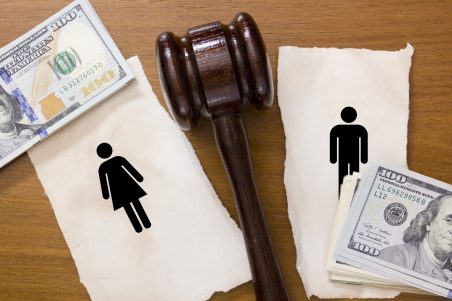6 Tips For Dealing With Debt In Divorce

Debt is probably the last thing you want to think about when going through a divorce; however, you need to deal with shared debts head on if you want to protect yourself from financial woes down the line. To ease your burden, here are 6 tips for dealing with debt in divorce:
-
Don’t go it alone: Consult with your divorce attorney.
Laws regarding the distribution of debt burdens during divorce vary from state to state. That is why it is important to consult a divorce attorney in your area who can advise you on your state’s specific laws and which strategy best suits your circumstances – no two divorce processes are exactly alike.
An example of how state laws vary regarding divorce is community property laws. States such as California, Nevada, and Wisconsin hold each spouse responsible for what they purchased with a credit card – keeping meticulous purchasing records will ensure you aren’t held accountable for debts you didn’t create.
-
To save money, consult with a financial planner or credit counselor.
Many divorce attorneys charge by the hour. And they are not cheap: the average attorney’s fee charged was $250 per hour, while big city lawyers could cost upwards of $400 to $500 per hour. From consultation to case-closed, people spent $9,000 to $14,000 on their attorney’s fees. While lawyers are an indispensable resource during divorce proceedings, you don’t necessarily need them to get your post-divorce finances in order. Financial planners or credit counselors are a great low-cost alternative and can advise you on many of the same money matters an attorney can.
-
Distribute jointly-owned credit card debt to cards held individually.
Don’t leave any credit cards open that you are jointly responsible for with your spouse. According to seasoned divorce attorneys, it is not uncommon for spouses to enter spending wars with the idea that if one is spending so can the other – even with couples who may have loved one another, divorce can create animosities that spiral out of control. Remember that credit card companies do not abide divorce agreements and you can be held responsible for the other’s shopping spree. Note: an exception to liability is if one spouse owns the account but the other is just an added cardholder, this spouse is not responsible for debts (even if they swiped the card).
To avoid such a scenario, some credit card companies allow you to transfer balances to different cards, allowing you to distribute shared credit card debt among personally-held accounts.
-
Refinancing: Replace jointly-held loans with new loans in one person’s name.
Similar to transferring credit card balances, you can also take out a new loan signed by one spouse to pay off previous loans cosigned by both parties. For example, if you and your spouse cosigned for a car loan, one of you can take out a new loan to pay off the existing one. There is one caveat, however: generally, the one applying for the loan must have the credit to be approved on their own – if they have poor credit, this may not be an option.
-
Liquidate your assets.
Instead of divvying up possessions and selling them on your own, you might want to reach an agreement with your spouse to sell all jointly-owned belongings to pay off any shared debts, including a mortgage, car loan, or credit card balances. Selling the family home, for example, may be upsetting for both you and your kids, but may provide the capital to make a clean break, preventing heartbreak and stress down the road.
-
If you can help it, don’t leave the marriage with debt.
Last piece of advice: If at all possible, pay your debts off before you finalize your divorce. To reiterate, loan or credit card agreements do not change in light of a divorce. Even if your spouse agreed to pay back the debt, you are still responsible for the accounts if anything happens to him or her or if they decide not to honor your agreement.
For divorcees left with an unmanageable amount of unsecured debt, New Era Debt Solutions may be able to help with debt relief. New Era is a debt settlement company that helps people dramatically reduce their debt obligation to secure their financial independence. Since 1999, we have settled over $275 million in debt for our clients.
To see if debt settlement is right for you, contact us or fill out the form on this page for your free debt analysis.
